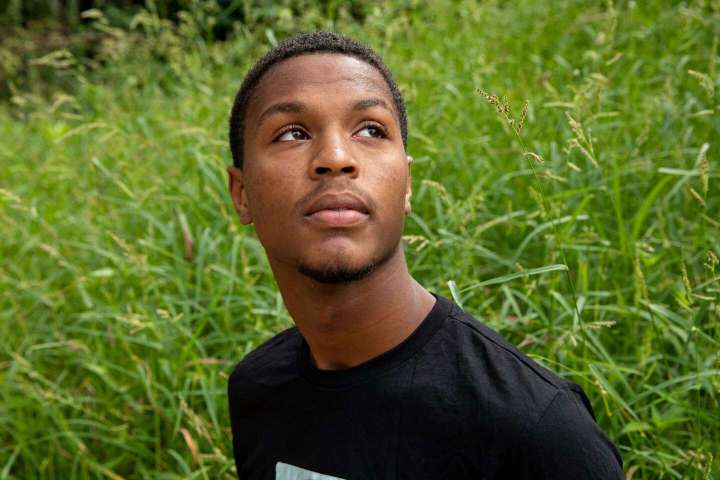About 2,000 miles from his home in Southeast Washington, 16-year-old Don’Zeal Davis pitched a tent in Wyoming’s Grand Teton National Park. He spent the next 24 hours alone in the wilderness, a kind of training exercise held during a recent two-week summer camp for D.C. teenagers.
Navigating the wilderness, avoiding predators urban and rural

“In the woods, by myself, it was stormy, and I was getting wet and mad,” Don’Zeal recalled.
And yet, when asked to compare his time in the wilderness with life in his hometown, there was no contest.
“I don’t hardly know how to put it into words,” he said, “except to say that Wyoming is a whole lot less stressful.”
That’s due in large part to what Don’Zeal did not hear in the woods. There were no gunshots, no screams, no sirens. None of the earsplitting, nerve-racking bloodletting that occurs daily in some parts of D.C. and urban America.
“I try not to think about it,” Don’Zeal said of the rise in shootings and assaults in the city. “Except when I’m walking alone.”
The annual outing is a collaboration between two D.C.-based nonprofit organizations: Horton’s Kids, which empowers children in underserved neighborhoods to graduate from high school and succeed in college, and the City Kids Wilderness Project, which hosts the camp at the Broken Arrow ranch in Jackson Hole. Both help children develop life skills to broaden their career prospects.
There is also an intense focus on healing trauma, which is more pervasive than you might think.
A report in June by the D.C. Policy Center noted that just being in proximity to repeated criminal acts can have a deleterious effect on mental and physical health. The study found that 80 percent of District residents lived within a half-mile of a homicide in 2021. However, in wealthy and predominantly White Ward 3, there were only two homicides, and no one lived within a half-mile of either killing.
In predominantly Black Ward 8, which includes Don’Zeal’s neighborhood, every resident lived within a half-mile of at least six and as many as 30 homicides. There were 226 killings last year.
Citywide, 89 percent of Black children lived within a half-mile of a homicide, compared to 57 percent of White children. That’s thousands of kids coming upon bloodstained sidewalks, shell casings, yellow police tape, chalk marks outlining bodies and survivors walking around like the living dead.
“I don’t like my kids going outside,” said Donithia Davis, Don’Zeal’s mother.
She’d become especially concerned in 2015, when a woman and boy were shot and wounded in front of the apartment building where they live. Then, in 2016, a 6-year-old boy was shot in his lower leg while on a playground next to their home. Don’Zeal was 9 at the time and used to play there, too.
In 2017, a toddler who lived in their complex was shot when a gun that other children were playing with went off. In April this year, a woman was shot and wounded in the same block. And on and on it goes.
At Horton’s Kids, which operates out of the building where the Davis family lives, Don’Zeal has a tutor and a mentor. He’s learning social and emotional skills — how to identify his feelings, such as anger, though physical manifestations such as a fist or clenched jaw — and how to calm himself before doing something he might regret later.
Camping in Wyoming has given him a new perspective on life, he says.
“At night, someone would bring out a telescope and we’d do stargazing,” he said. “And I came up with the idea of going to college to study business so I could open up a family-oriented retreat in D.C. called the Midnight Palace.”
He spoke with awe and wonder about learning about the world the way some boys talk sports. He could do that, too. At camp, he’d won an award for his rock-climbing prowess and his persistence in learning to handle a kayak. A second award recognized his pleasing personality and a sense of humor that lifted the group’s spirits during a 15-mile hike.
After returning to D.C. a week ago, he began preparing for school. He’s an 11th-grader at Bell Multicultural High School in Columbia Heights.
“Actually, I’m kind of nervous,” he said about the start of school. “I’ve got to get on my game. I can’t be messing around with the same people.”
His mother said she hoped that Don’Zeal, who is the oldest of five, would finish high school, go to college and be successful in life. “I don’t want him to get with the wrong crowd and lose focus,” she said.
In the past, Don’Zeal sometimes cut class to be with his friends. They’d even come to his classroom and entice him to hang out.
“If I was bored, I’d go,” he said. “But I have to find a way to get done what I need to get done in school.”
In Wyoming he’d learned to navigate a kayak through tricky rapids. During rock climbs, he seemed to know intuitively where to get a toehold, which crevices to slip his fingers into and how to pull himself to the top.
Now, he just has to learn to do the same with his friendships — when to reach for the next rock and let go of the other.






